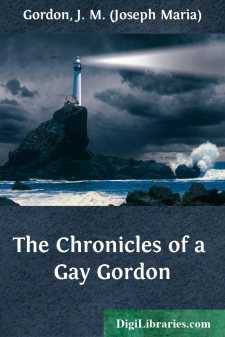Categories
- Antiques & Collectibles 13
- Architecture 36
- Art 48
- Bibles 22
- Biography & Autobiography 815
- Body, Mind & Spirit 144
- Business & Economics 28
- Children's Books 18
- Children's Fiction 14
- Computers 4
- Cooking 94
- Crafts & Hobbies 4
- Drama 346
- Education 58
- Family & Relationships 59
- Fiction 11834
- Games 19
- Gardening 17
- Health & Fitness 34
- History 1378
- House & Home 1
- Humor 147
- Juvenile Fiction 1873
- Juvenile Nonfiction 202
- Language Arts & Disciplines 89
- Law 16
- Literary Collections 686
- Literary Criticism 179
- Mathematics 13
- Medical 41
- Music 40
- Nature 179
- Non-Classifiable 1768
- Performing Arts 7
- Periodicals 1453
- Philosophy 65
- Photography 2
- Poetry 896
- Political Science 203
- Psychology 44
- Reference 154
- Religion 515
- Science 126
- Self-Help 85
- Social Science 82
- Sports & Recreation 34
- Study Aids 3
- Technology & Engineering 59
- Transportation 23
- Travel 463
- True Crime 29
Our website is made possible by displaying online advertisements to our visitors.
Please consider supporting us by disabling your ad blocker.
The Chronicles of a Gay Gordon
Categories:
Description:
Excerpt
José Maria Jacobo Rafael Ramon Francisco Gabriel del Corazon de Jesus Gordon y Prendergast—to give the writer of this book the full name with which he was christened in Jeréz de la Frontera on March 19, 1856—belongs to an interesting, but unusual, type of the Scot abroad.
These virile venturers group themselves into four categories. Illustrating them by reference to the Gordons alone, there was the venturer, usually a soldier of fortune, who died in the country of his adoption, such as the well-known General Patrick Gordon, of Auchleuchries, Aberdeenshire (1635-1690), who, having spent thirty-nine years of faithful service to Peter the Great, died and was buried at Moscow. Or one might cite John Gordon, of Lord Byron’s Gight family, who, having helped to assassinate Wallenstein in the town of Eger, in 1634, turned himself into a Dutch Jonkheer, dying at Dantzig, and being buried at Delft.
Sometimes, especially in the case of merchants, the venturers settled down permanently in their new fatherland, as in the case of the Gordons of Coldwells, Aberdeenshire, who are now represented solely by the family of von Gordon-Coldwells, in Laskowitz. So rapid was the transformation of this family that when one of them, Colonel Fabian Gordon, of the Polish cavalry, turned up in Edinburgh in 1783, in connexion with the sale of the family heritage, he knew so little English that he had to be initiated a Freemason in Latin. To this day there is a family in Warsaw which, ignoring our principle of primogeniture, calls itself the Marquises de Huntly-Gordon.
Occasionally the exiles returned home, either to succeed to the family heritage, or to rescue it from ruin with the wealth they had acquired abroad. Thus General Alexander Gordon (1669-1751) of the Russian army, the biographer of Peter the Great, came home to succeed his father as laird of Auchintoul, Banffshire, and managed by a legal mistake to hold it in face of forfeiture for Jacobitism. His line has long since died out, as soldier stock is apt to do—an ironic symbol of the death-dealing art. But the descendants of another ardent Jacobite, Robert Gordon, wine merchant, Bordeaux, who rescued the family estate of Hallhead, Aberdeenshire, from clamant creditors, still flourish. One of them became famous in the truest spirit of Gay Gordonism, in the person of Adam Lindsay Gordon, the beloved laureate of Australia.
The vineyard and Australia bring us to the fourth, and rarest, category, represented by the writer of this book, namely, the family which has not only retained its Scots heritage, but also flourishes in the land of its adoption, for Mr. Rafael Gordon is not only laird of Wardhouse, Aberdeenshire, but is a Spaniard by birth and education, and a citizen of Madrid: and this double citizenship has been shared by his uncles Pedro Carlos Gordon (1806-1857), Rector of Stonyhurst; and General J. M. Gordon, the writer of this book, who will long be remembered as the pioneer of national service in Australia.
The Gordons of Wardhouse, to whom he belongs, are descended (as the curious will find set forth in detail in the genealogical table) from a Churchman, Adam Gordon, Dean of Caithness (died 1528), younger son of the first Earl of Huntly, and they have remained staunch to the Church of Rome to this day: that indeed was one of the reasons for their sojourning aboard....


